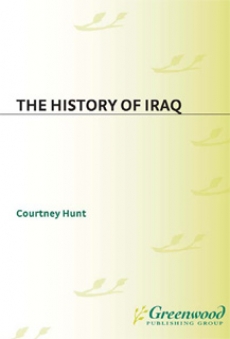| Series Foreword
The Greenwood Histories of the Modern Nations series is intended to provide students and interested laypeople with up-to-date, concise, and analytical histories of many of the nations of the contemporary world. Not since the 1960s has there been a systematic attempt to publish a series of national histories, and, as editors, we believe that this series will prove to be a valuable contribution to our understanding of other countries in our increasingly interdependent world.
Over thirty years ago, at the end of the 1960s, the Cold War was an accepted reality of global politics, the process of decolonization was still in progress, the idea of a unified Europe with a single currency was unheard of, the United States was mired in a war in Vietnam, and the economic boom of Asia was still years in the future. Richard Nixon was president of the United States, Mao Tse-tung (not yet Mao Zedong) ruled China, Leonid Brezhnev guided the Soviet Union, and Harold Wilson was prime minister of the United Kingdom. Authoritarian dictators still ruled most of Latin America, the Middle East was reeling in the wake of the Six-Day War, and Shah Reza Pahlavi was at the height of his power in Iran. Clearly, the past thirty years have been witness to a great deal of historical change, and it is to this change that this series is primarily addressed.
With the help of a distinguished advisory board, we have selected nations whose political, economic, and social affairs mark them as among the most important in the waning years of the twentieth century, and for each nation we have found an author who is recognized as a specialist in the history of that nation. These authors have worked most cooperatively with us and with Greenwood Press to produce volumes that reflect current research on their nation and that are interesting and informative to their prospective readers.
The importance of a series such as this cannot be underestimated. As a superpower whose influence is felt all over the world, the United States can claim a "special" relationship with almost every other nation. Yet many Americans know very little about the histories of the nations with which the Untied States relates. How did they get to be the way they are? What kind of political systems have evolved there? What kind of influence do they have in their own region? What are the dominant political, religious, and cultural forces that move their leaders? These and many other questions are answered in the volumes of this series.
The authors who have contributed to this series have written comprehensive histories of their nations, dating back to prehistoric times in some cases. Each of them, however, has devoted a significant portion of the book to events of the last thirty years, because the modern era has contributed the most to contemporary issues that have an impact on U.S. policy. Authors have made an effort to be as up-to-date as possible so that readers can benefit from the most recent scholarship and a narrative that includes very recent events.
In addition to the historical narrative, each volume in this series contains an introductory overview of the country's geography, political institutions, economic structure, and cultural attributes. This is designed to give readers a picture of the nation as it exists in the contemporary world. Each volume also contains additional chapters that add interesting and useful detail to the historical narrative. One chapter is a thorough chronology of important historical events, making it easy for readers to follow the flow of a particular nation's history. Another chapter features biographical sketches of the nation's most important figures in order to humanize some of the individuals who have contributed to the historical development of their nation. Each volume also contains a comprehensive bibliography, so that those readers whose interest has been sparked may find out more about the nation and its history. Finally, there is a carefully prepared topic and person index.
Readers of these volumes will find them fascinating to read and useful in understanding the contemporary world and the nations that comprise it. As series editors, it is our hope that this series will contribute to a heightened sense of global understanding as we embark on a new century.
Frank W. Thackeray and
John E. Findling Indiana University Southeast | 